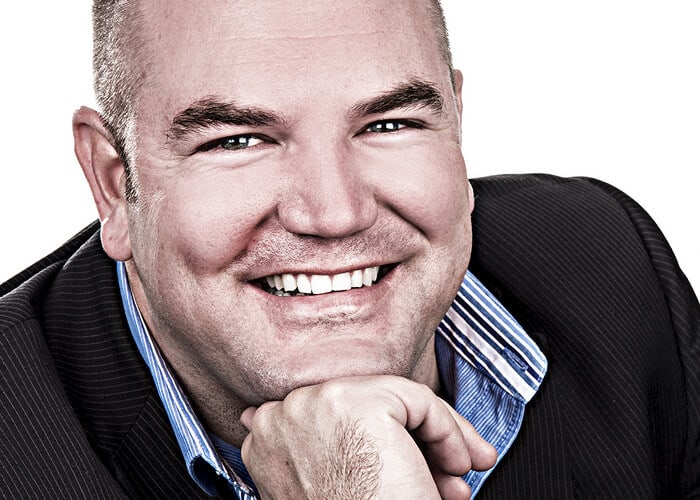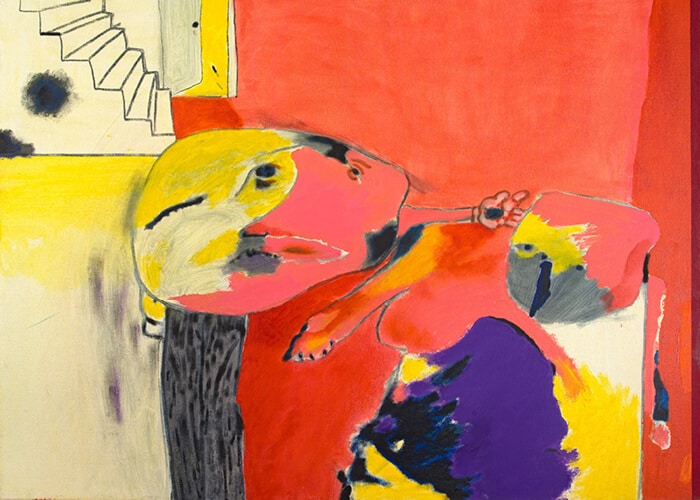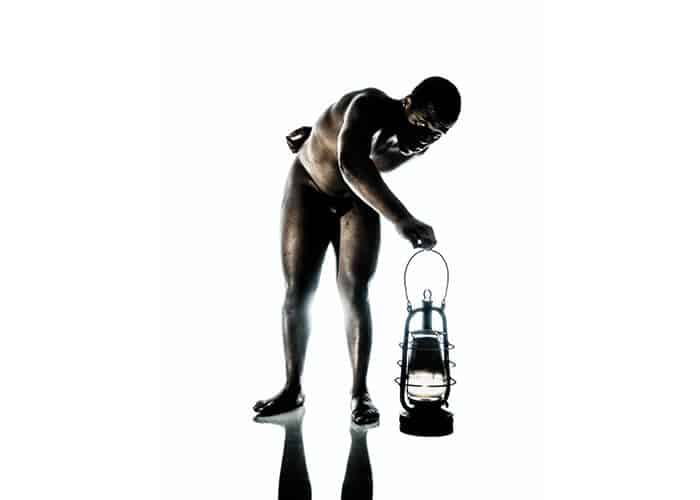ARTsouthAFRICA 13.1 is the ‘Interview Issue.’ In it, we engage in conversation with a number of carefully selected artists, curators, writers and organisations who we know are truly committed to transformation, to changing perceptions about contemporary African art practice, and promoting the integration of communities that might otherwise not be exposed to the wealth of talent from the continent and the ways in which art can change lives. We published a number of excerpts and now present Angola- based writer, photographer and artist Albano Cardoso’s full interview.

Is there such a thing as ‘African art’ and does the label “African Art” enable or limit artists from the continent? What qualifies an artist to call himself or herself an ‘African artist?’ Are the issues of labels and identity still valid?
Albano Cardoso: Art is an inherent result of the event of life on Earth. People will always produce and react to art. Hence, there is art being produced within Africa, and African artists operating (anywhere) in the world, either as part of a structured art system or not. “African Art” has been around for a long time. But why feed old perceptions into theory? Artists in Africa want to be seen as artists, because that’s what they do on a daily basis, that’s their job. You don´t practice being African, you just are; being African is not a bar code.
The label ‘African Art’ acts primarily as an inhibitor for audiences, and even for new art critics, to see beyond their preconceptions about Africa, and about art. These preconceptions can turn creators into prisoners, as the audience’s verdict is often the sole input for the artist to consider when it comes to feedback.
Why stick with hollow concepts that tend to diminish and restrict by labeling the role of the artist in society? I think s/he who is an African that makes art, is therefore an African artist. Why bother to tag? Lots of people have names that have no special meaning attached to them, and yet their lives do not become meaningless for that reason alone. So really, what’s in labeling? See, it all comes down to the fact that African artists are not used to the business of being pushed around by people who aren’t familiar with the foundations and ceilings of art economics, for instance. Some people assume there’s room for dictatorship in the arts, or that you should produce only state art, for example.
So often, as an artist, you struggle and then you die, and if, by any chance, your work gains art historical relevancy, then we begin to witness the appropriation of that imagery. We see it being shoveled into future generations, as pure culture, in spite of no help being offered to that specific creator while s/he was alive, all the while completely unaware of how individuality plays out at the centre of that work.
Africa is a new economic frontier where young people are shaping Africa’s future. What do they want to see, hear and read that will inspire them to embrace African arts and culture?
Young people will eventually shape the world anyway, right? I am keen to speak to the emerging class of young executives and African entrepreneurs about really supporting local art. Certainly, by encouraging them to slowly start new art collections, but also to help them realise that the money they make and the freedom they enjoy today are the result of major cultural achievements, like political independence from Europe for example. Thus, society should leave space open for the artist to comment in order to learn that arts and culture are intrinsic to the debate about our nations, cities, and villages. We need to consider art as an ally in shaping our children’s education, and building peace, but, as it stands, how far are today’s parents from art galleries and good books? That’s what’ll dictate the future in Africa. If you follow the hot issues concerning the continent (be it religion, violence, women’s rights or homosexuality) the youngsters are often more stubborn, the conservative soldiers; they’ve been formatted by their parents without knowing it. Sometimes its scary to call it “the future” when it’s tainted all over by the past, and ignores the present.
It can be argued that Africa’s time is now. How do we prepare to take full advantage of the opportunities that are constantly unfolding in front of us. More importantly how does the African contemporary art establishment position itself to emerge as a ‘global player’ whose voice can be heard and respected?
I could rap on about how artists need to stand up and make their voices heard, how they need to exist within working collectives and so on and so forth. It is true that, in Africa, the heavy burden of civil war has not allowed for the flourishing of good school education, but we need to remember that the art market needs a boost too. The building of new facilities like roads, schools, factories and so on continues without expanding towards art venues. The new tall buildings (corporates) are not buying work from local artists, so I don’t know how we intend to be a ‘global player’ if we can’t achieve success locally. Art and artists shouldn’t have to walk alone, different sectors should merge in order to build up solid solutions.
There is a perception amongst some on the continent that South African contemporary art is more ‘Western’ than ‘African’. How do we bridge the divide geographically and culturally, between the north and the south?
Should African musicians not be allowed to play western instruments either? Not everything is as western as it may appear! The same goes the other way around. Some people are still struggling with these boundary issues, but I don’t think that artists suffer from that problem. Otherwise we’d still be painting in caves, or happy just selling our art on the side of the road. I think the issue should be seen more like urban vs. rural, or history vs. future, instead. How grounded are you, ancestrally, when facing today’s events? How far are you at any given time from a road, a major city, a university, or even from a computer? Ultimately, smart tech will continue to seduce us and force us to be part of a deep globalisation that continues to happen electronically. I haven’t seen Africans discriminating about adopting European cars, or laptops, or about wearing a pair of American Levi’s. Rather on the contrary, in fact; so the concept of “western” becomes twisted even before we even take into account the amount of American Dollars that foreign investors make out of Africa.
It can also be seen as an issue of modern vs. traditional. Of course, many people value tradition, but Africans also want to keep up with the world, as we are very aware that the continent’s economic underdevelopment, corruption, and unqualified labor act as hurdles to a speedy improvement on schooling, jobs, and life in general. I don’t think French people today think less of themselves compared with their ancestors. Picasso was Spanish, lived in France, and became acquainted with African art through sculpture. Societies will not remain the same, because people won’t either. So, to impose, or to expect, that we should live like our ancestors did, is to enjoy seeing Africans as permanent outsiders of the global economic structure.
Is a new trans national ‘African art dialogue’ needed to foreground the various conversations, challenges and successes from other African centers of culture and thinking?
Just like Bob Marley said, “It takes a revolution to make a solution”, and revolutions tend to work better when synchronized. The problem is that in some places, like Angola, for instance, mistrust can occur after the flop of events like Luanda’s Triennial of Arts, or the way that the Artist’s National Union is proudly ruled with such inefficiency.
If Africa can leave behind its idea of Africa as a geography, or as a post colonial reaction, or as being defined by blackness, can it then be defined rather as a new dynamic energy?
Do you see how quickly global information and the development occurring in other regions is shaping things around us? I often like to think that I am Africa; you are Africa. Every single person represents it individually. That’s one way of getting things done, on an individual level, otherwise the mismatch will continue to occur as Africa doesn´t represent the sole body/mind everybody is talking about. We cant expect progress to happen magically.
There is a new generation of Africans whose minds are not shackled by a past of oppression or power dynamics. How do we engage and inspire them to embrace art and culture?
South Africa has its unique history, and the same goes for every single country on the African continent, but we share common ground in that art has always been made, regardless of our adversities, right? So why don’t we further improve all aspects of its legacy?
I also believe the only honest way to carry tradition is by tackling its cultural spirit, not necessarily its forms, all the while building knowledge and infrastructures to accommodate and disseminate art education. Creativity should be kept alive.
How can we avoid bad historical precedents and pigeonholing from framing our future discourse?
We need to find and assemble strong partners who are focused, not only on profit but also on public education. We should be producing thoughtful content about artists and the local art scene. By exposing art to the public majority, so that people don’t just hear about it but rather experience it first hand, then, maybe, audiences will see themselves reflected in the freedom that art exercises.
What new stories of identity are revealed for this Africa through its art?
I’m not so sure, but for instance I’ve been talking to some people in Brazil because I believe there´s more than religion, more than slavery that binds us together with the diaspora; there are today’s and tomorrow’s dreams to fulfill our souls.
What is African art when it is no longer called African art?
It sounds like you want a prophecy from me, but I do not know that much. I guess Africans will still be around for a long time, despite the odds. I’m just an African that reveals himself through art.
As Africa emerges, transforms and gains energy, what will African contemporary art represent?
It represents the pulse of a current, living, screaming social existence to which the artists belongs, whether reflecting his/her point of view, contemplating the feat of the cosmos, or telling us about the traditional culture of the fishermen in his hometown. They say that, as Africa emerges, it’s crucial to listen to, read, and see the work of its artists, as they are the ones who are in touch with people’s daily lives. How can you invest in Africa without noticing the intellectuality of its art? Before good anthropology can take place, we need to look beyond the politicians that never set foot outside of their luxury cars and offices.
What are the deepest provocations that art should pose for Africa today? And how do you think these will influence Africa 15 years from now?
I am not good at making these sorts of predictions, but I truly believe that art in Africa shall rise and continue to be art, earning benefits for its constitutional foundations, and benefitting also from the investment happening throughout the continent. If everything is changing, why art should stay the same? We should see changes for the lack of public libraries, art galleries, literature, and theater and music venues, just as we see changes and upgrades to our roads. Why is everybody, but the artist, saying what the place for art is in today’s society? Answering these kinds of questions will definitely influence life in Africa for better or for worse, accordingly.
As the old ideas of North and South – East and West deconstruct, what approaches will be reflected through its art practice and discourse?
The problem is that all these kinds of ‘compass’ ideas were never designed, conducted, or reflected by ‘art activists’; being they artists or institutions. So why should we blindly follow strategies that place us artists as mere entertainers at the big financial party that rules all our lives?
As a confident transnational Africa emerges, what do we see as the most progressive approach that ‘African art’ can take and what does this approach represent and what new qualities does it possess and pose?
The trade of courage and the mechanisms of making art must be shared among us. We need to reflect upon our responsibilities and impose demands that need to be taken in account, as a class with our own rights. We need to give our full attention if we’re going to contribute to the shape of a truly free, and therefore democratic, Africa.
For a new generation not willing to be co-opted into the dramas of the past nor defined by a previous generations concerns, art challenges new orthodoxies to create a new platforms for art practice and discourse that brings together creative, and intellectual minds.
Are the current voices and media of today’s ‘art establishment’ still relevant? Are they able to capture the current zeitgeist? How should we be engaging the new generation to inject a sense of edginess into our discourse?
Are the current voices and media of today’s ‘art establishment’ still relevant? Are they able to capture the current zeitgeist? How should we be engaging the new generation to inject a sense of edginess into our discourse?
Even if for only that reason, art in Africa has to be able to tell this ‘new generation’ about the battles for social improvement that need to to be taken up and sustained. The fear of retrogress is too heavy to consider.
In Angola at least, the battle hasn´t started from the beginning, so it’s harder now for artists as they are alone, without the local media being able to keep up, unable to master skills beyond the pre-basics, to be polite. I believe social media will play a huge role too, as artists will have to master being vocal about their work.
Who is the new African art hero?
There’re so many ways of resisting the worst to come, as the effort of making art in Africa attests to. But most likely, the hero is the African continent itself; it is a unique panoramic presence. Wherever one travels in Africa there is still an abundance of hope and pain, always hand in hand. How do you help people learn the necessary tools for overcoming adversity? That could be where the African artist plays his/her role.
Is there anything else you would like to add?
Please buy and learn about my new photo-book. I’m focusing on engaging new audiences in the city, but I am struggling in my hometown to put together an art show with the pictures from the book and to finally launch it publically, to seal a painful five-year endeavor. There are no art galleries in Angola. I’m also looking for an agent gallery right now to represent my work, photography and painting.
Albano Cardoso is a writer, painter and photographer, born in Luanda in 1966. Having taught language in his home country, studied in the United States, and lived in the U.S., Portugal, and Australia, Cardoso now writes and publishes books in Angola.
He taught Portuguese language in a public school.
Albano attended College in the U.S.A. and has lived in U.S., Portugal, East Timor, and Australia.
Albano attended College in the U.S.A. and has lived in U.S., Portugal, East Timor, and Australia.
Books:
Atlético Petróleos de Luanda – Uma História Desportiva, 2005. H/C, Sports History, 356 pages.
Atlético Petróleos de Luanda – Uma História Desportiva, 2005. H/C, Sports History, 356 pages.
Tic-Tacteando O Florescer da Idade, 2010. Poetry/Portuguese.
Last year Albano printed a new photo book that is an example of works and practices within SADCC Economic Zone. It was produced in Cape Town, South Africa
Under Surveillance | Sob Vigilância, 2013. Photography, H/C, 204 pages.
ARTsouthAFRICA magazine is available at leading and niche bookstores in South Africa and via subscription for international distribution. Subscribe now and receive a 20% discount (offer valid until 30 September 2014.)



